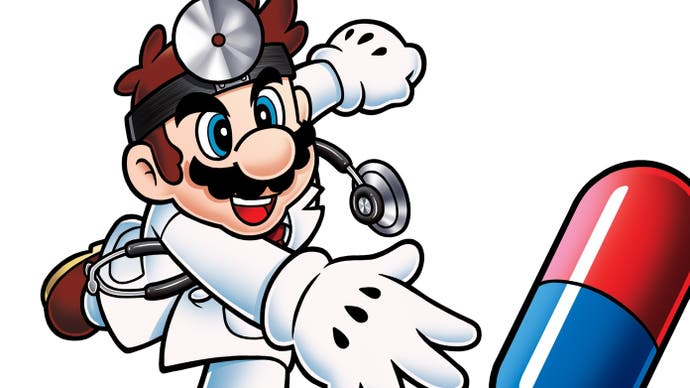Concern rises over World Health Organisation's new "gaming disorder"
WHO?
A "gaming disorder" could become a proper medical condition should a draft of the updated International Classification of Diseases manual be approved unamended roughly a year from now.
A proposed definition of "gaming disorder" appeared in the newest version of the International Classification of Diseases - the 11th revision of which is in development and has been for a few years - published this morning.
The 10th revision of the ICD, implemented by many countries in their national health policies, is 26 years old, having been approved in 1992. We first heard word of its inclusion back in January this year.
The current version of ICD-11 defines "gaming disorder" as:
"Characterised by a pattern of persistent or recurrent gaming behaviour, which may be online or offline, manifested by: 1) impaired control over gaming (e.g., onset, frequency, intensity, duration, termination, context); 2) increasing priority given to gaming to the extent that gaming takes precedence over other life interests and daily activities; and 3) continuation or escalation of gaming despite the occurrence of negative consequences.
"We welcome the inclusion of gaming disorder in ICD-11" -The Department of Health & Social Care
"The behaviour pattern is of sufficient severity to result in significant impairment in personal, family, social, educational, occupational or other important areas of functioning. The pattern of gaming behaviour may be continuous or episodic and recurrent. The gaming behaviour and other features are normally evident over a period of at least 12 months in order for a diagnosis to be assigned, although the required duration may be shortened if all diagnostic requirements are met and symptoms are severe."
The Department of Health & Social Care told me today it welcomes the inclusion of "gaming disorder" in the ICD.
"Very large numbers of people play games on- and off-line," a spokesperson said. "For the vast majority it is a recreational activity. But research shows that for a small number their gaming can become harmful, or an addiction.
"We welcome the inclusion of gaming disorder in ICD-11, which will over time help to understand the true prevalence of harmful gaming."
But the inclusion of "gaming disorder" has caused concern across the games industry - so much so global gaming organisations have come together to issue a joint statement in reaction to the news.
The statement, co-signed by (big breath) UKIE, ESA, EGDF, IESA, ESAC, IGEA, ISFE, KGAMES and UBV&G, reads:
"Video games across all kinds of genres, devices and platforms are enjoyed safely and sensibly by more than 2 billion people worldwide, with the educational, therapeutic, and recreational value of games being well-founded and widely recognised. We are therefore concerned to see 'gaming disorder' still contained in the latest version of the WHO's ICD-11 despite significant opposition from the medical and scientific community. The evidence for its inclusion remains highly contested and inconclusive.
"We hope that the WHO will reconsider the mounting evidence put before them before proposing inclusion of 'gaming disorder' in the final version of ICD-11 to be endorsed next year. We understand that our industry and supporters around the world will continue raising their voices in opposition to this move and urge the WHO to avoid taking steps that would have unjustified implications for national health systems across the world."
"We hope that the WHO will reconsider the mounting evidence put before them..." -Joint statement of global gaming organisations
UKIE has created a "gaming disorder" FAQ to inform people about ICD-11 and the issue at hand. And it's an issue which involves opposition from mental health experts, social scientists and academics from research centres and universities, who have been debating and arguing against a "gaming disorder" since 2016, both in an Open Debate paper as well as a paper titled, 'A weak scientific basis for gaming disorder: Let us err on the side of caution.'
"We agree that there are some people whose play of video games is related to life problems," the latter paper's Abstract reads. "We believe that understanding this population and the nature and severity of the problems they experience should be a focus area for future research. However, moving from research construct to formal disorder requires a much stronger evidence base than we currently have. The burden of evidence and the clinical utility should be extremely high because there is a genuine risk of abuse of diagnoses.
"We acknowledge there could be benefits to formalising gaming disorder, many of which were highlighted by colleagues in their commentaries, but we think they do not yet outweigh the wider societal and public health risks involved. Given the gravity of diagnostic classification and its wider societal impact, we urge our colleagues at the WHO to err on the side of caution for now and postpone the formalisation."
Concern around video game addiction is nothing new of course. British TV documentary series Horizon investigated 'Are Video Games Really That Bad?' a couple of years ago, in an hour-long episode featuring a few faces you'll recognise.
But the current game on everybody's lips is Fortnite, which maker Epic recently announced has more than 125 million players around the world. With so many people playing, and so many so young, naturally the topic of 'children spend too long playing Fortnite' has emerged, especially across trashier mainstream media. And it's into that world - a mix of worried parents and rebellious teens - a "gaming disorder" would be mixed, which sounds like a volatile and dangerous concoction to me.








